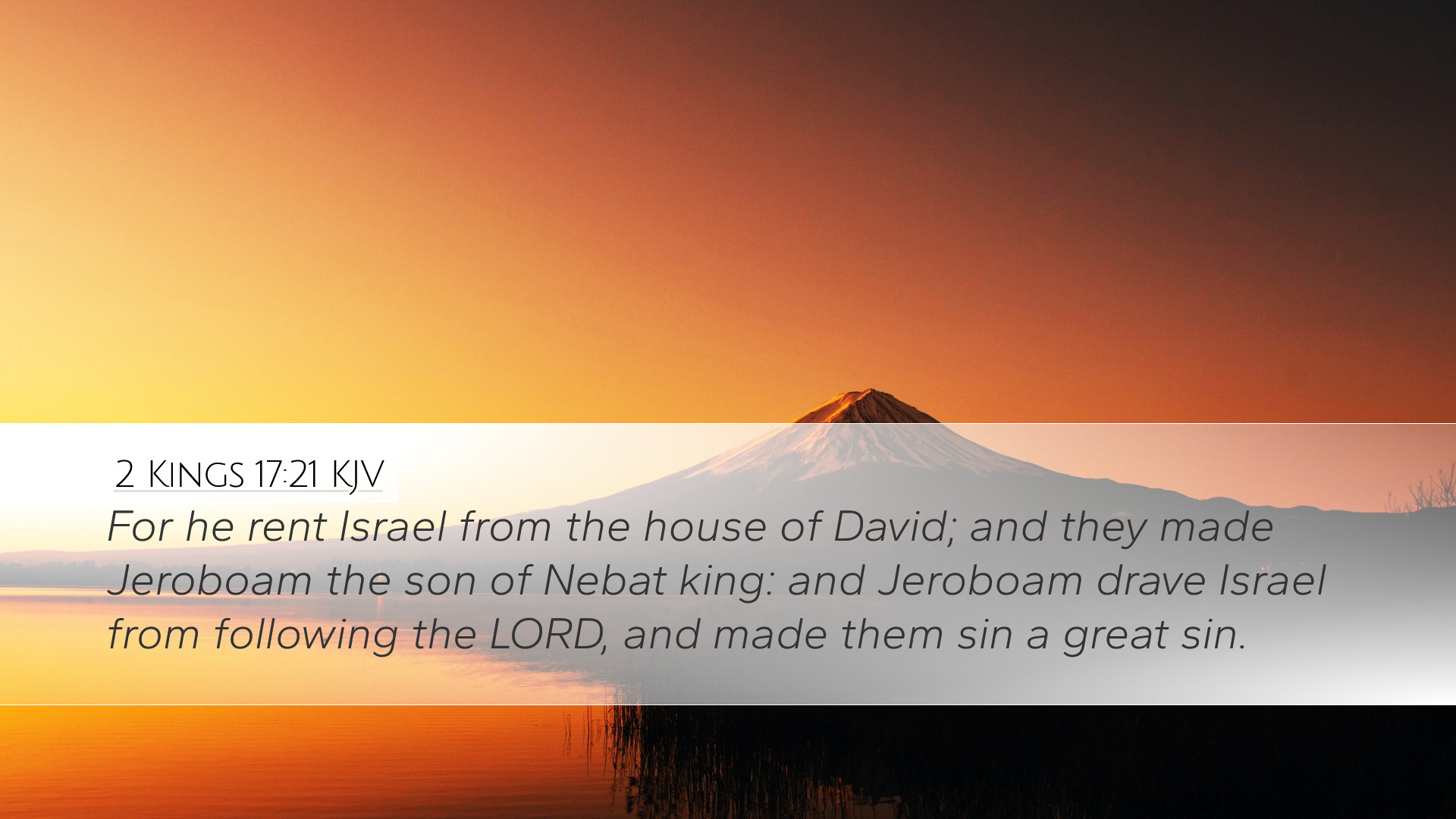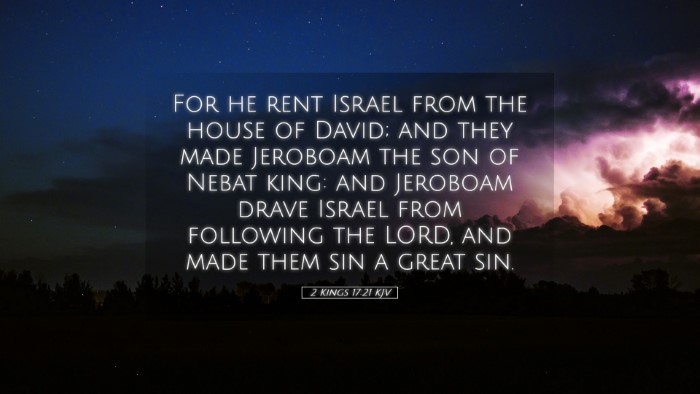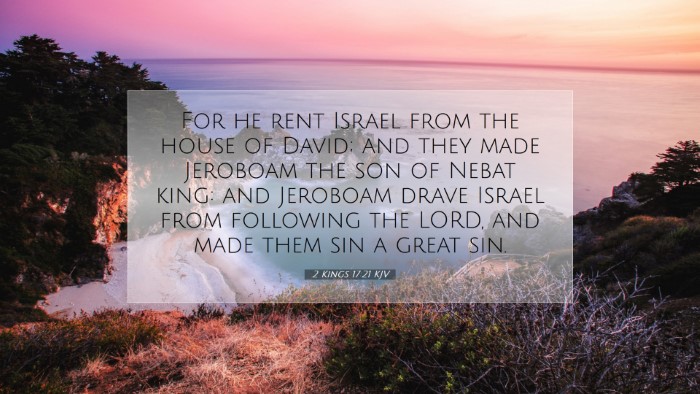Commentary on 2 Kings 17:21
Verse: "For he rent Israel from the house of David; and they made Jeroboam the son of Nebat king: and Jeroboam drave Israel from following the LORD, and made them sin a great sin."
Introduction
The historical context of 2 Kings 17:21 is pivotal in understanding the trajectory of Israel after the United Monarchy. This text marks a significant moment when the kingdom of Israel was divided from the house of David, leading to a series of spiritual and political ramifications.
Historical Context
Following the reign of Solomon, the kingdom was divided due to various factors including discontent among the tribes and heavy taxation. Jeroboam, who was previously a servant in Solomon's court, emerges as a leader of the northern tribes. The uprising against Rehoboam signifies not just a political shift but also a spiritual decline.
Theological Insights
-
The Sovereign Act of God: The division of Israel from Judah is depicted as a result of God’s sovereignty and judgment. Matthew Henry notes that this act was foreseen and brought about due to Solomon's idolatry which provoked God's anger (1 Kings 11:11-13).
-
The Role of Jeroboam: Jeroboam's rise to power illustrates a critical turning point in Israel’s religious landscape. Albert Barnes elaborates on how Jeroboam's actions led Israel away from true worship, establishing golden calves as a proxy for Yahweh, thereby leading the nation into sin.
-
The Concept of Sin: The "great sin" mentioned signifies a severe deviation from the covenantal worship prescribed by the Torah. Adam Clarke emphasizes how this sin was not merely a lapse but a deliberate choice to substitute true worship with idolatry, reflecting a broader rejection of God's commandments.
Jeroboam’s Leadership
The character of Jeroboam is critical to the understanding of this passage. He represents the archetype of a leader who prioritizes political expediency over spiritual fidelity. His fear of losing power led him to innovate religious practices, which ultimately distanced the people from the worship of Yahweh.
Theological Consequence
Jeroboam’s reign was characterized by a series of idolatrous practices that were designed to unify the northern tribes but, in reality, they fragmented their relationship with God. Matthew Henry states that these practices brought about divine judgment, which would manifest in the subsequent history of the northern kingdom.
Spiritual Decline
The text highlights the theme of spiritual decline which began with this division. The departure from the house of David symbolizes more than political strife; it marks a turning point in the covenant relationship. Adam Clarke points out that the people’s choice to follow Jeroboam was indicative of a larger spiritual malaise affecting the nation.
Implications for Future Generations
The consequences of this division had lasting effects that resonated through subsequent generations. The perpetual nature of sin in Israel can be traced back to this moment of rebellion against the divine order established by God through David.
Lessons for Today
-
Leadership and Accountability: This passage serves as a stark reminder of the moral responsibilities of leaders. Jeroboam’s example warns contemporary leaders regarding the dangers of compromising spiritual integrity for the sake of political or personal gain.
-
Importance of True Worship: The narrative underscores the significance of adhering to the true worship of God. As modern believers, the challenge remains to resist cultural pressures that seek to distort or redefine genuine worship.
-
Historical Awareness: Understanding the historical context of biblical narratives helps to inform present-day faith and practice. Recognizing patterns of faithfulness and failure within the biblical text can guide believers in their own spiritual journeys.
Conclusion
2 Kings 17:21 reveals profound truths about human leadership, the nature of sin, and the sovereign actions of God. As the church navigates its own contemporary challenges, the lessons gleaned from Israel's history serve as both a warning and an encouragement to adhere to God's covenant and to seek genuine worship in all aspects of life.


